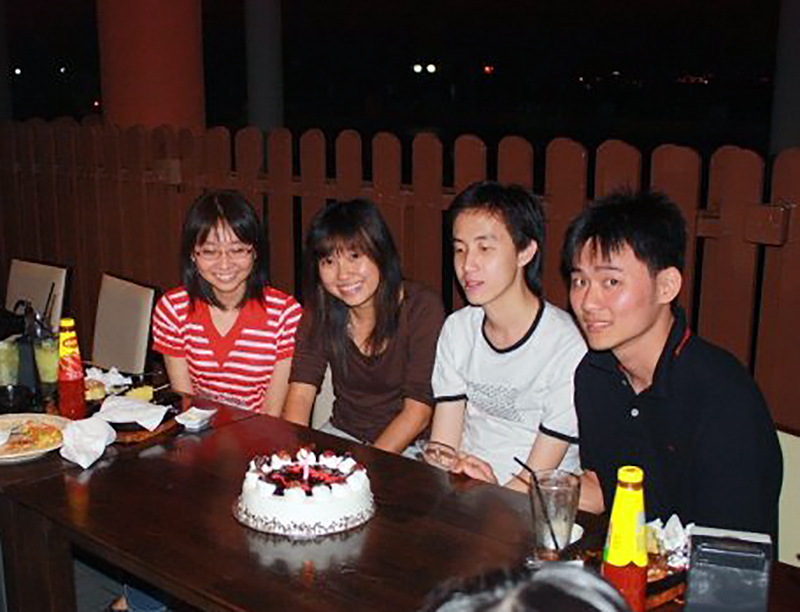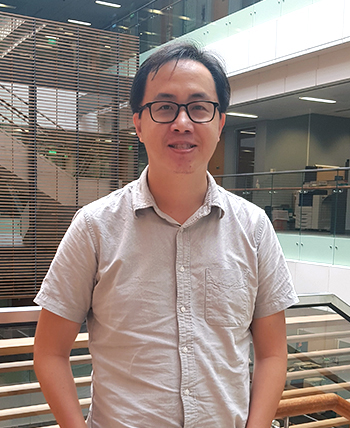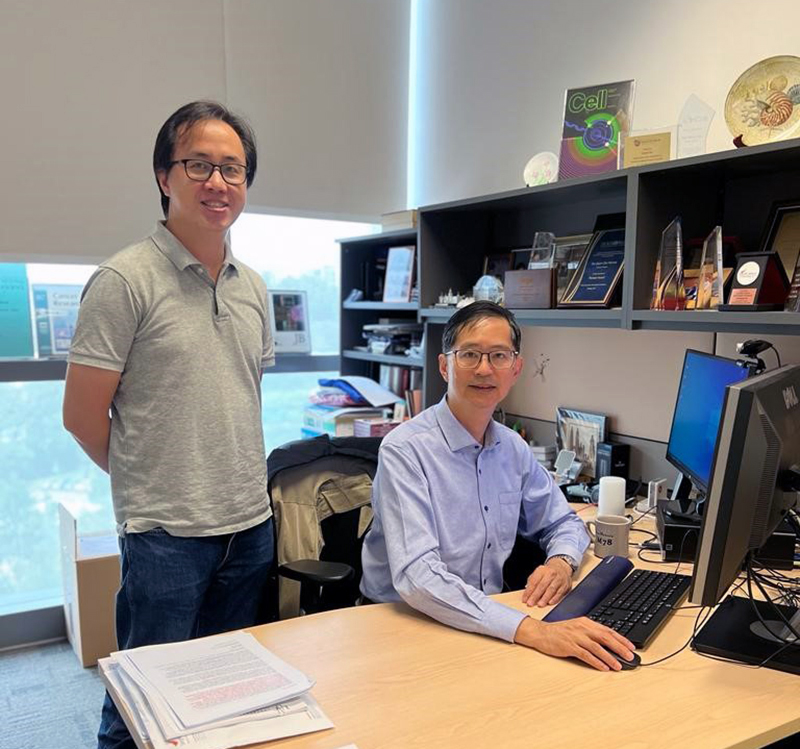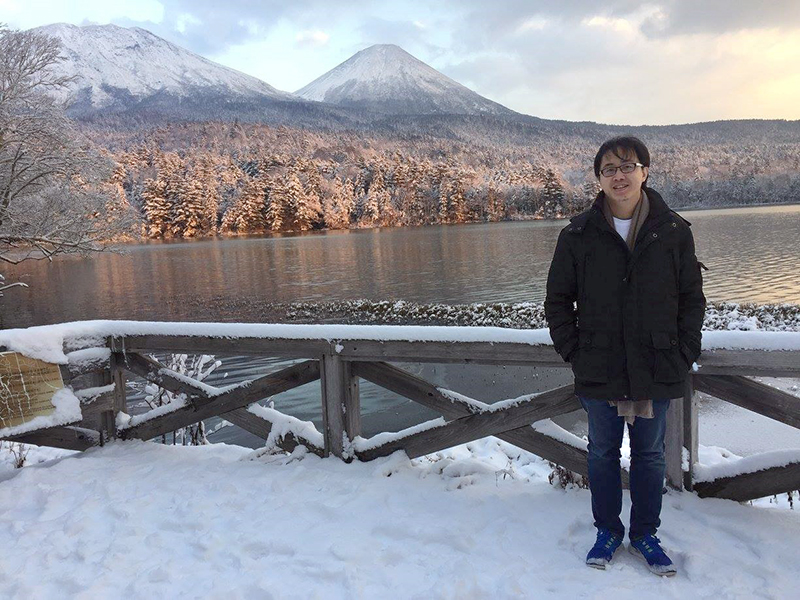Back
Monday, 03 Jul, 2023
Dr Huang Kie Kyon: human calculator and stomach cancer scientist
Pop quiz: what is 734 multiplied by 274?
Before you can even finish punching the numbers into a calculator, Dr Huang Kie Kyon would have had the answer. He was about 10 years old when he won a regional mental arithmetic competition.
Born and brought up in Miri, Sarawak in East Malaysia, Dr Huang has always had a penchant for biology and computer science since he was a child.
 Dr Huang (white tee) with his friends back in 2009.
Dr Huang (white tee) with his friends back in 2009.
On one hand, he was intrigued by how living organisms functioned and interacted with one another; on the other hand, he was fascinated by how computers could be used to solve complex mathematical problems. These seemingly disparate interests led him to a degree in bioinformatics.
“Bioinformatics is the perfect intersection of my two interests,” said Dr Huang.
“The prospect of using my computational skills to analyze large datasets of biological information and make new discoveries about genetics, diseases, and other aspects of life sciences is something I find very appealing.”
His career stars started to align when he was pursuing his PhD in Cancer Biology at the Cancer Science Institute of Singapore. There, he met his mentor Professor Patrick Tan, a distinguished cancer and genomics scientist who is currently the Senior Vice Dean of Research at Duke-NUS Medical School.
“I was very fortunate to be mentored by Prof Tan who was my thesis supervisor. We worked on gastrointestinal stromal tumor (GIST) -- a rare cancer type that also occurs in the stomach but is genetically unrelated to stomach cancer,” explained Dr Huang.
At the end of his graduate studies, Dr Huang expressed his interest to continue his research in stomach cancer.
 |
“I chose stomach cancer due to its significant impact on public health, particularly in Asia where it has the highest prevalence. Stomach cancer is also known to have defined pre-malignant lesions, such as gastric intestinal metaplasia and dysplasia, which are early warning signs that may develop into stomach cancer.
Studying the molecular and cellular changes in these premalignant lesions may allow us to identify individuals at high risk to develop stomach cancer.” |
Upon hearing his plans, Prof Tan generously shared with Dr Huang his ongoing research projects on pre-malignant stomach cancer. This made Dr Huang even more excited to embark on a career as a stomach cancer scientist.
Since then, Dr Huang has continued to work with Prof Tan, and has had the opportunity to be part of a landmark genetic study to better predict stomach cancer.
Dr Huang also received the Khoo Postdoctoral Fellowship Award to further support his research, which is an important part of an ambitious investigation to understand why some people develop stomach cancer, while others do not. His findings will help doctors identify those who may benefit from closer follow-up to prevent cancer or to detect it early so that it can be cured.
“The Khoo Postdoctoral Fellowship Award has provided me with a valuable experience in planning and executing large genomics projects, which will be helpful for my development as an independent researcher,” said Dr Huang.
“It has been great having Huang in the lab. Besides his expertise in bioinformatics, he also has a deep understanding of the biology of cancer. This allows him to infer new insights from genome-scale data, that will ultimately benefit patients with stomach cancer in Singapore and worldwide,” added Prof Patrick Tan.

Dr Huang with his mentor Prof Patrick Tan.
Outside of the lab, Dr Huang enjoys travelling, experiencing different cultures, and trying new food.

Dr Huang enjoys travelling to Japan for its beautiful landscapes, unique traditions and food.
“I appreciate the opportunity to learn about different countries and to meet new people. This sometimes inspires me to develop new research strategies. I hope I can continue to use my skills to contribute to the field of biology and medicine.”